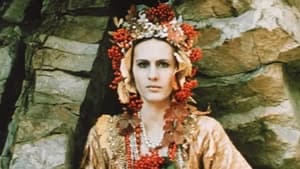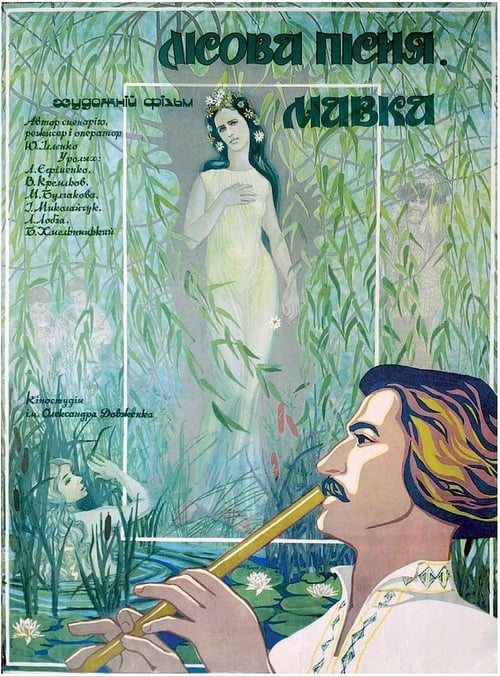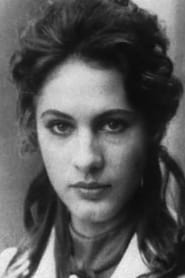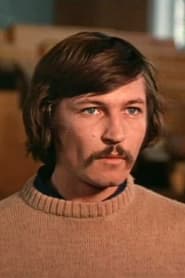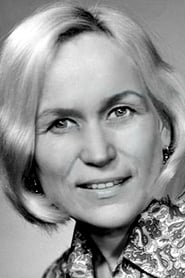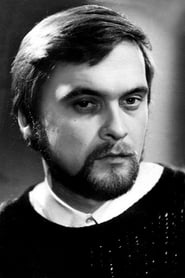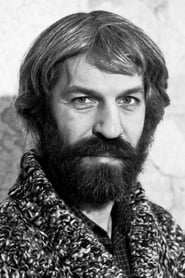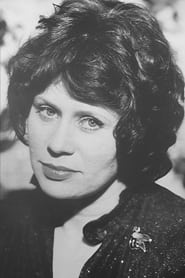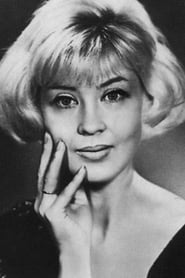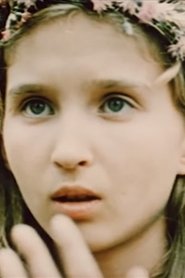Cast
View AllLiudmyla Yefymenko
as Mavka
Viktor Kremlev
as Lukash
Maya Bulgakova
as Lukash’s Mother
Ivan Mykolaichuk
as Uncle Leo / Wood Goblin
Boris Khmelnitsky
as Red (forest) Demon
Viktor Demertash
as Koots
Lyudmyla Lobza
as Kylyna
Nina Shatskaya
as Water Sprite
Svetlana Sergeyeva
as Meadow Fairy
Ivan Khodulin
as Kylyna’s child
Pylyp Illienko
as Kylyna’s child
Vladimir Fyodorov
as Hunger Imps
Crew
Director
- Yurii Illienko
Reviews
SGhosh
It seems that I have stumbled on one of Yuri Ilyenko’s masterpieces at last, a beautiful and tragic adaptation of a play (written in 1912) based around folklore. Mavka, a water nymph is enticed by a young man’s flute and falls in love with him, only to be betrayed as the man marries another. The forest spirit turns the man into a werewolf for his betrayal, but Mavka’s devotion breaks the spell even as the man’s wife curses Mavka. A fantasy from the priceless vaults of Cinema from USSR, this is a gorgeous film, and the use of color (as it was talked about a few posts back) is especially brilliant, attaining a symbolic tone through the elements of nature, like snow, fire, leaves, etc. The film is steeped in melancholy, the signature soundtrack both delirious and meditative, and the story dense with unfulfilled love. The land and the trees and the fields are shot with such subdued passion that it really transports you to a land of mystery and magic, and it is thus, even more striking how effortlessly Ilyenko merges humans and spiritual beings into an unconventional, touching and vengeful saga. It is as heartbreaking as love stories can be, and spiritually resonant too, with the long shots and the beautifully executed effects casting a divine aura on the film. In the later half the film gets darker, as love and loyalties are put to test and little escapes unscathed. The shots with Mavka in the frame scream out serenity and godly beauty, and the forest is tenderly filmed, the icy willows, the dark green water weed, the youthful shrubs, the yellow fields, the interplay of light and leaves, everything is shot with a tangible pathos. The movie is very atmospheric too, in some way echoing the intensity of the spiritual beings’ consciousness. In conclusion, this is an elusive and poetic fantasy tale, drenched in mystery, music and love. Must watch!
Feb 10, 2014
Thematic Analysis
As a dramatic work, A Story of the Forest: Mavka examines complex human relationships and emotional struggles against the backdrop of a period setting that reflects societal issues of its time. The character development particularly stands out, offering viewers a chance to reflect on their own life journeys.
Director Yurii Illienko brings their distinctive visual style to this film, continuing their exploration of themes seen in their previous works while adding new elements. Their approach to character development and emotional depth creates a viewing experience that rewards close attention.
Released in 1980, the film exists within a cultural context that now offers viewers historical perspective on the social issues of that era. Its reception demonstrates the diverse reactions to its artistic choices and its place in cinema history.
Did You Know?
- The production of A Story of the Forest: Mavka took approximately 20 months from pre-production to final cut.
- The final cut of the film runs for 83 minutes, though the director's initial assembly was reportedly 123 minutes long.
- The cast underwent specialized training for 3 weeks before filming began.
- Some visual effects sequences took up to 10 months to complete.
- The director insisted on using practical effects whenever possible, reserving CGI for only the most necessary scenes.
Historical Context
- In 1980, when this film was released:
- Economic policies were shifting toward deregulation in many Western countries.
- MTV launched, changing how music was marketed and consumed.
- Independent cinema was growing in influence, challenging the dominance of major studios.
How This Film Stands Out
While A Story of the Forest: Mavka shares thematic elements with other films in its genre, it distinguishes itself through its unique approach to storytelling, visual style, and character development.
Unlike Forrest Gump, which takes a more conventional approach to its subject matter, A Story of the Forest: Mavka subverts genre expectations by exploring its themes with greater nuance.
While films like Phoenix and Eclipse explore similar territory, A Story of the Forest: Mavka stands apart through its distinctive directorial vision and pacing.
This film's unique contribution to cinema lies in its thoughtful balance of entertainment value and thematic depth, making it a valuable addition to its genre.
Details
- Release Date: July 23, 1980
- Runtime: 1h 23m
